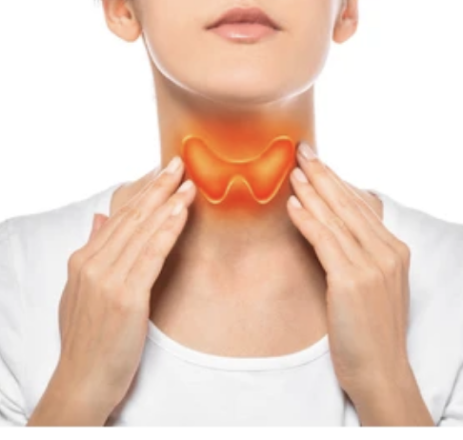At Optimal Body, we recognize that every person's journey to well-being is different, particularly during the transforming stage of perimenopause. OurSanta Clarita team of passionate experts is committed to offering specialized solutions to handle the particular difficulties associated with perimenopause. Explore how our comprehensive approach can help you navigate this transformative phase with confidence and optimal well-being.

Perimenopause, also known as the menopausal transition is a significant stage in a woman's life characterized by hormonal fluctuations. At Optimal Body, we understand how critical it is to take care of the unique requirements and symptoms that appear during this time. Our Santa Clarita perimenopause specialists are available to provide you with a customized treatment plan that will improve your general quality of life.
We don't just follow the norm when it comes to perimenopause care . Since every woman's experience going through perimenopause is different, our experts take the time to determine what you need. We seek to enhance your well-being throughout this transitional time with individualized advice on diet, lifestyle, supplements and targeted pharmaceuticals, including bioidentical hormone replacement therapy.

As your trusted perimenopause specialists in Santa Clarita we focus on providing perimenopause treatment plans tailored to your specific needs. Our holistic approach to maximizing your well-being includes tailored counseling, dietary assistance, supplement suggestions, and prescription alternatives.

At Optimal Body we prioritize providing a compassionate support system throughout your perimenopausal and menopausal journey. Our staff is committed to making sure you always feel knowledgeable, in control, and supported.
Have constant contact and follow-up with our medical professionals. Because we value a close relationship with our patients, we make sure that any changes to your treatment plan are based on how your requirements and preferences change over time.
Join our community of individuals navigating perimenopause and menopause. In order to foster a feeling of community and shared experiences among our patients, we provide them with helpful information, support groups, and participation opportunities.
Optimal Body encourages you to embrace perimenopause and menopause as positive phases of life. Our all-encompassing approach, thorough therapies, and committed support are designed to make your journey empowering, satisfying, and self-assured.
Embark on your menopause management journey by scheduling an initial consultation with our experienced healthcare providers. We evaluate your symptoms, go over individualized treatment plans, and provide you with detailed information on costs and available payment methods at this appointment.
Our healthcare team creates individualized treatment plans tailored to your specific needs. From symptom evaluation to treatment planning, we put your health first and help you manage menopause in a way that works for you.
At Optimal Body, our healthcare providers offer expert guidance and information on managing menopause. To help you make well-informed decisions about your health, we offer insightful information on available treatments, possible side effects, and the advantages of each option.
Experience a holistic approach to menopause management at Optimal Body. Your mental health is taken into account by our healthcare professionals in addition to your physical ailments. Our goal is to help you have a positive and empowered menopausal journey.


Examine the effects of Hypoactive Sexual Desire Disorder (HSDD), as defined by medical professionals, on a person's quality of life. This illness is explained in depth by our healthcare specialists and is typified by a chronic lack of interest or desire for sexual activity.
Recognize the typical signs of HSDD, such as a recurrent lack of interest in sexual activities, a decline in fantasies or thoughts related to sexuality, and a troubling sense of disconnection from one's sexuality. Our specialists guide you through understanding and identifying these symptoms.
Learn about FDA-approved drugs for treating HSDD and know when to take prescriptions for them. The efficacy of these drugs and how they may be used with therapy for better outcomes are discussed by our medical professionals.
Explore integrative approaches to treating HSDD, including non-pharmacological options. Our experts go over several HSDD treatment options, guaranteeing a thorough and individualized method of improving sexual desire and general well-being.
At Optimal Body our perimenopause specialists in Santa Clarita stand out with personalized care, expert guidance, and a comprehensive approach to treatment. In order to guarantee that you receive the best care possible at this life-changing stage, we give priority to your particular needs.
Take the first step towards a smoother perimenopausal journey. Make an appointment for a consultation with our Santa Clarita perimenopause specialists. Our staff is committed to providing you with individualized solutions so you can handle perimenopause with comfort and confidence.
Perimenopause is the transitional phase leading up to menopause. During this time, a woman's body undergoes hormonal changes, and she may experience symptoms such as irregular periods, heavier menstrual periods, hot flashes, mood swings, decreased libido, weight gain, and vaginal dryness.
Yes, various treatments can help manage perimenopausal symptoms. These may include hormone replacement therapy (HRT), lifestyle modifications, dietary changes, supplements, and medications for specific symptoms like hot flashes or mood swings. Consultation with an Optimal Body Nursing Center healthcare provider can help determine the most suitable treatment options.
Menopause is the stage in a woman's life when she has not had a menstrual period for 12 consecutive months. It marks the end of her reproductive years and typically occurs around 50, although it can vary.
Common symptoms of menopause include hot flashes, night sweats, vaginal dryness, mood swings, fatigue, reduced libido, cognitive changes (brain fog), and weight change. Symptoms can vary in intensity and duration among women.
Menopausal symptoms can vary greatly from woman to woman. Some may experience symptoms for a few years, while others may have them for a decade or longer.
Yes, there are several treatment options to manage menopausal symptoms: Hormone Replacement Therapy (HRT), lifestyle modifications, herbal remedies, and non-hormonal medications. The choice of treatment depends on individual symptoms and preferences. Please schedule an appointment with our healthcare providers for more information.
To begin menopause management at our clinic, you can schedule an initial consultation with one of our healthcare providers. During this consultation, we will assess your symptoms, discuss treatment options, and provide pricing and payment options information.
HSDD is a medical term used to describe a persistent and distressing lack of sexual desire or interest in sexual activity. It is characterized by a significant decrease in sexual thoughts, fantasies, and desires that affect a person's quality of life and well-being.
Yes, there are FDA-approved medications for the treatment of HSDD, which are typically prescribed when non-pharmacological approaches are ineffective or insufficient. These medications work to enhance sexual desire and may be used in combination with therapy.
Optimal Body is your partner in achieving optimal well-being during perimenopause. Our Santa Clarita team of experts is prepared to offer customized perimenopause care that takes into account your unique requirements. To start your road toward comfort, confidence, and general well-being, get in touch with us right now.
One out of every ten premenopausal women experiences sexual dysfunction, yet fewer than 50% of healthcare providers address these concerns. Various forms of sexual dysfunction can affect women, including Hypoactive Sexual Desire Disorder (HSDD), Female Arousal Disorder (FAD), and Dyspareunia.
Reduced or absent interest in sexual activity.
Distress and frustration due to the lack of desire.
Lack of sexual fantasies or thoughts.
Persistent and distressing decline in sexual desire
Avoidance of sexual activity.
Arousal Disorder is characterized by the persistent or recurring inability to achieve sexual arousal or maintain it throughout sexual activity. In women, this may manifest as difficulty becoming adequately lubricated during foreplay and intercourse, as well as a lack of pleasure from sexual intercourse.
Peripheral Vascular Disease
Vulvodynia
Diabetes
Pelvic Floor Dysfunction
Menopause
Previous Negative Experiences or Feelings Toward Intercourse.
Neurological or Spinal Issues
Is sexual intercourse causing discomfort or pain?
You may be experiencing Dyspareunia. This is a medical condition for recurrent genital pain caused by sexual activity. Dyspareunia can have a significant effect on physical and mental health, as well as quality of life.
Reduced or absent interest in sexual activity.
Distress and frustration due to the lack of desire.
Lack of sexual fantasies or thoughts.
Persistent and distressing decline in sexual desire
Avoidance of sexual activity.

Here are some common approaches:
These include:

PCOS affects approximately 1 in 10 women, yet it often takes an average of 2 years and 3 or more medical provider visits to receive a diagnosis
Missed, irregular, or very light periods
Weight gain, particularly around the abdomen
Enlarged ovaries with multiple cysts
Acne or oily skin
Excess body hair, such as on the chin, chest, stomach, and back (hirsutism)
Male-pattern baldness or hair thinning
Skin darkening
Infertility

Our clinic offers various treatment options, including:
Adrenal dysfunction is the body's natural response to prolonged stress. These small glands atop the kidneys play a vital role in producing stress hormones, including Adrenaline, Epinephrine, DHEA, Cortisol, and Pregnenolone.
High Cortisol Symptoms:
Low Cortisol (Often referred to as "Adrenal Fatigue") Symptoms:
Anxiety and Irritability
Fatigue and Exhaustion
Insomnia
Depression
Hot Flashes
Increased Sleep but Frequent Nighttime Wakening
Brain Fog
Early Menopause or Menstrual Irregularities
Sugar Cravings
Orthostatic Hypotension (Low Blood Pressure when Standing)
Fatigue (Feeling 'Tired but Wired')
Poor Concentration
High Blood Sugar and Insulin Resistance
Very Low Libido
Symptoms Resembling Irritable Bowel Syndrome (IBS)
Low Libido and Vaginal Dryness

The thyroid is a small, butterfly-shaped gland in the front of your neck. Your thyroid's main job is to control the speed of your metabolism. Hypothyroidism is when the thyroid gland doesn't make enough thyroid hormones to meet your body's needs. Approximately 60% of people in the US have hypothyroidism. On the other hand, Hyperthyroidism, or overactive thyroid, happens when your thyroid gland makes more thyroid hormones than your body needs.
Fatigue
Menstrual Irregularities
Sensitivity to Cold
Fertility Issues or Miscarriage
Constipation
Muscle and Joint Pain (especially in Hashimoto's Thyroiditis)
Weight Gain
Confusion or 'Brain Fog'
Dry Skin
Slow Thinking
Depression

FatigueAnxiety
Goiter (visibly enlarged thyroid gland) or thyroid nodules.
Difficulty concentrating.
Hair loss.
Fatigue.
Hand tremor.
Frequent bowel movements.
Heat intolerance.